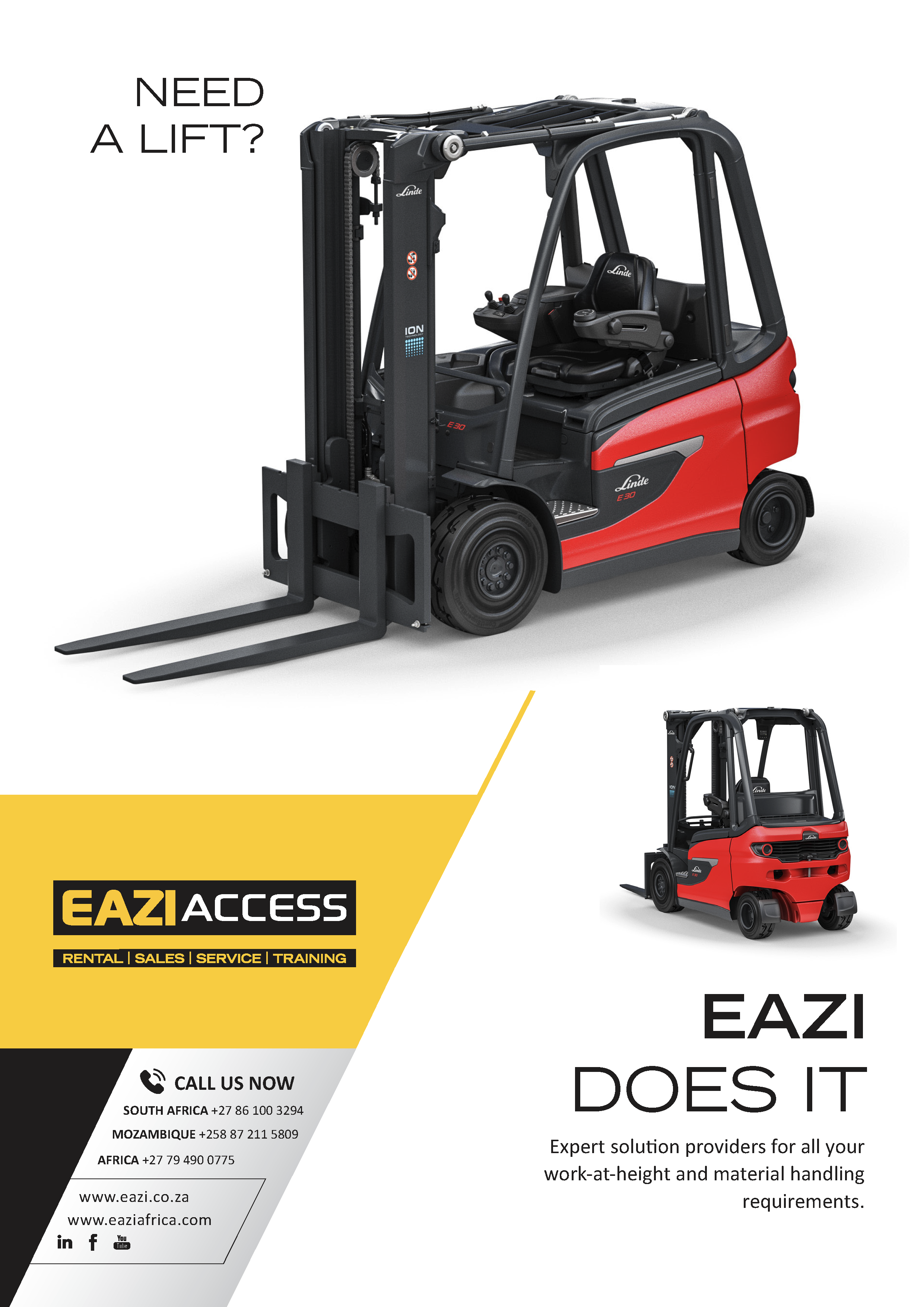Forklift Evolution with The Supply Chain Over The Last Decade
Forklifts have made a considerable impact on the Material Handling space since industrial production scaled up drastically between the 17th and 18th century. Consequently, there was a need for faster, safer, and more efficient mechanisms for moving materials.
According to Jozua Coetzee, Eazi Access Business Development Manager: Sales & After Sales, “Manufacturers are constantly trying to improve designs for better safety, efficiency, and cost reduction. The materials handling industry has been experiencing significant advancements in automation over the last few years. Automated guided vehicles (AGVs), robotic arms, and conveyor systems are increasingly integrated into warehouses and factories to streamline processes. These technologies are reducing labour costs, improving efficiency, and enhancing safety.”
Moreover, the emergence of artificial intelligence and machine learning is enabling more sophisticated automation, with systems capable of autonomous decision-making and adapting to changing conditions. The ongoing development of Industry 4.0 principles is further driving the adoption of automation in materials handling, promising a future where smart factories and warehouses operate seamlessly.
In our roadmap towards a smart future, decarbonization is increasingly playing a crucial role in the forklift industry as companies seek to reduce their carbon footprint and meet sustainability goals. Several key factors illustrate this:
- Electric Forklift Adoption: There's a growing shift towards electric forklifts, which produce zero emissions at the point of use. These forklifts are powered by batteries, making them more environmentally friendly compared to traditional internal combustion engine forklifts running on fossil fuels. Electric forklifts are also quieter and have lower operating costs in the long run.
- Hydrogen Fuel Cells: Hydrogen fuel cell-powered forklifts have gained attention as a decarbonization solution. They offer the advantage of quick refuelling and longer operating hours compared to battery-powered forklifts, improving efficiencies. Companies are exploring hydrogen infrastructure and investing in fuel cell technology to reduce emissions.
- Sustainability Goals: Many companies are setting ambitious sustainability targets, which include reducing greenhouse gas emissions. Switching to cleaner forklift technologies aligns with these goals and contributes to a greener supply chain.
- Regulatory Compliance: In regions with strict emission regulations, such as the European Union, forklift operators are incentivized to transition to low or zero-emission equipment. Compliance with these regulations is driving the adoption of cleaner forklift technologies.
- Innovations in Battery Technology: Ongoing advancements in battery technology, including lithium-ion batteries, are increasing the efficiency and range of electric forklifts, making them more attractive to businesses seeking to decarbonize.
In summary, decarbonization is pushing the forklift industry toward cleaner and more sustainable technologies, including electric and hydrogen fuel cell-powered forklifts. This transition not only reduces carbon emissions but also aligns with broader sustainability initiatives and regulatory requirements.
Eazi Access is Africa’s market leader in work-at-height and material-handling solutions. Its comprehensive offering includes rental, sales, servicing, and training across a range of industries and applications. “We have partnered with global trusted OEM brands such as Linde Material Handling, one of the world’s largest manufacturers of forklift trucks and warehouse equipment, specialising in industrial trucks, fleet management, driver assistance systems and service offerings. The products of this premium brand allows us to bring in complementary ranges that enable Eazi Access to be a full solutions partner to our customers, supporting their equipment needs and sustainability goals. This is backed by our 23 branches across South Africa and sub-Saharan Africa.” added Coetzee.
About Eazi Access
Founded in 2003, Eazi Access is Africa’s market leader in work-at-height and material-handling solutions. Our comprehensive offering includes rental, sales, servicing, and training across a range of industries and applications. We have an extensive footprint across the country and a growing presence throughout the rest of Africa. We have the largest, most diverse fleet of equipment, which is backed by an expansive and experienced network of skilled technicians and our commitment to providing 24/7 support to our customers.
Landline: +27 87 086 5039 | Cell Phone: +27 79 010 8518
Email: tralone.khoza@eazi.co.za
Website: www.eazi.co.za

